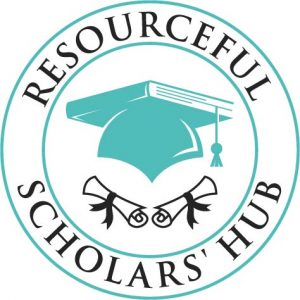Because of the covid-19 pandemic which has limited physical interactions and meetings, many institutions have taken to the various digital platforms to organise their events.
The academic community has not been left behind and this is an opportune time for PhD students to attend as many training workshops as possible, majority of which are free.
In the spirit of arming myself with knowledge and skills to hone my scientific writing skills, I recently attended a scientific writing webinar held for Health Economics and Policy students and early-career researchers based in Africa.
This post highlights the key lessons I learned from the webinar:
- Scientific writing is a journey
- Sources of research ideas
- Types of research articles
- Publishing models
- Open access
- Traditional subscription publishing model
- Factors to consider when choosing a journal for publication
- Impact factor of the journal
- The audience of the journal
- Relevance of the journal
- Past experience
- Peer review process
- Read the guidelines for authors
- Preparing your manuscript for publication
- Using journal finders to find a suitable journal for your paper
- Related posts
Scientific writing is a journey

The journey starts with a myriad of ideas that result from personal or work experience, interests, discussions with colleagues, or suggestions from advisors and supervisors.
Once you’ve settled on one idea that you want to run with, you then look for an appropriate journal.
However, the journey from ideation to journal selection need not be linear. Sometimes you may see a call for papers which then nudges you to find an idea of a paper to respond to the call for papers.
After identifying the journal, you then write the paper, send to peers for informal review before submitting it to the journal or call for papers.
The paper then undergoes a formal review and it is either published or rejected.
The rate of rejection of papers submitted to journals for publication is as high as 90%. So if you see an established researcher with at least 20 publications in his/her name, it is highly likely that he/she had about 180 other papers that were rejected.
Sources of research ideas
There are many sources of ideas for research. These include:
- An ongoing project: projects – whether for your organization or contracted by clients – are often a good source of research ideas especially if the project involves collection of primary data. You may use the data to analyse a research issue that was not part of the original research.
- Request by your supervisor or colleague to work on a specific topic together.
- Emerging issues of public concern: a good example in the health sector is the emergence of infectious diseases such as Ebola and recently the covid-19 pandemic. Such issues always force researchers to shift their focus from what they working on to research on the emerging issues.
- Personal interests.
- Issues of national importance: for instance, in Kenya, there are many road accidents caused by bodaboda riders. Majority of road accidents’ casualties in hospitals are as a result of bodaboda riders. A researcher may undertake a study to understand what are the key driving factors of the high rate of bodaboda accidents in the Kenya and propose recommendations to reduce bodaboda accidents.
- Issues of international importance: for instance, climate change, Sustainable Development Goals etc. These are often a good starting point for undertaking research. For instance, a researcher may decide to do a study that tracks his country’s progress towards the goals and targets set out in the SDGs.
Types of research articles
There are different types of research articles that a researcher or PhD student can write:
- Editorials: these are commissioned by editors of journals and are usually very short in length.
- Original research: these are the most common scientific articles.
- Review papers: these are summaries of other papers and include: systematic reviews and scoping reviews.
- Commentaries and opinion pieces: these are short articles which are sometimes commissioned by editors.
- Methodological musings: these are usually focused on a new methodology that the author wants to push out to other readers.
- Letters: may be in response to a paper written or letters to the editors.
- Book reviews: short reviews of books.
Of these article types, the most weighty ones in terms of scientific career are the original research and commentaries/opinion pieces. Therefore PhD students and early-career researchers should put their effort in writing original research papers and commentaries/opinion pieces.
Publishing models
Open access
As the name suggests, once a paper becomes open access, everyone can gain access to it free of charge.
publishing in open access journals however comes at a cost to the researcher and the cost can be as high as $10,000 for one paper in some instances.
Traditional subscription publishing model
In this model, the researcher does not pay for the paper to be published.
The downside to this model is that access to such papers is restricted to other researchers especially if they have not paid the journals’ subscription fees.
Factors to consider when choosing a journal for publication
There are many factors to consider when choosing a journal in which to publish a research paper. PhD students and early-career researchers are encouraged to always consult senior researchers when choosing journals for publication because the latter have a vast experience in this matter.
Some of the factors to consider include:
Impact factor of the journal
Impact factor is a metric used to measure the importance and prestige of journals. It is determined by the number of articles in the journal that are read and cited by researchers globally.
The higher the impact factor of a journal, the higher the journal is ranked, and the more difficult it is to publish in that journal.
This site is a good resource to learn about the impact factor of various journals.
The audience of the journal
This is determined by the subject matter/content that is covered by the journal.
For example, if your research paper is in the field of Economics, you will look for journals that cover Economics topics because that’s where your audience will be.
The audience can also be looked at from the perspective of their skills and knowledge. For instance, if a journal focuses on policymakers, then it is expected that the journal papers will not be too technical. Whereas if the audience is academic, then the papers should be technical in nature.
Relevance of the journal
Besides looking at the content and subject matter of the audience, one should consider the scope of the journal in terms of reach of its audience. Is the journal focused on local, regional or international audience and issues? A research paper that addresses an issue of international concern is best published in a journal with an international reach and vice versa.
Past experience
Past experience of the researcher or his senior colleagues is a good factor to consider when choosing a journal for publication.
Peer review process
A good journal is one that has a good peer review process in place to ensure that the papers published therein are of high quality.
PhD students and early-career researchers should be mindful of predatory journals, whose main aim is just to earn money from researchers who are desperate to publish. Such journals do not have a rigorous peer review process in place and often accept any article for the sake of money.
The video below is a fun (and unfortunate) experience of two doctors with a predatory journal. Please watch:
Read the guidelines for authors
All journals have guidelines for authors on submission and publication of research papers in their journals.
Always read the guidelines carefully to know what is expected of you as the researcher in terms of content, format as well as fees (submission and publishing fees).
Preparing your manuscript for publication
After you have identified a good journal for publication, then you need to follow the steps below:
Paper structure: always follow the guidelines provided to the letter when structuring the paper for publication.
Informal review: always give your work to a friend or colleague to review it before you submit it for publication. Having a second eye review the paper before submitting it is always helpful and may reduce the number of revisions the paper goes through before its final acceptance.
Professional copyediting/proofreading: if your budget allows, hire a professional copyeditor and/or proofreader to go through the paper and correct the errors before submitting it for publication.
Accompany your paper with a good cover letter: the cover letter helps the editor to know what your paper is about without having to read the paper first.
Using journal finders to find a suitable journal for your paper
There are many journal finders that help researchers to identify the most suitable journal for their papers. Most of the publishing companies have their own journal finders.
How they work:
Input the required information in the journal finder. This will vary from one finder to another.
The journal finder will give you a number of journals that are suitable to your paper.
It is your responsibility to go through the recommended journals and their requirements to see if they fit your needs.
Some of the journal finders include:
- Elsevier: https://journalfinder.elsevier.com/
- Springer: https://journalsuggester.springer.com/
- Wiley: https://journalfinder.wiley.com/
- Taylor & Francis: https://authorservices.taylorandfrancis.com/publishing-your-research/choosing-a-journal/journal-suggester/
- Enago: https://www.enago.com/researcher-hub/journal-finder.htm
The above list is not exhaustive.
In conclusion, scientific writing is a journey that is not always linear and has its ups and downs. This article highlighted some sources of research ideas for publication, types of research articles, factors to consider when choosing a journal for publication, preparing a manuscript for publication and using a journal finder to find suitable journals for publication.
Related posts
How to Read Journal Papers Quickly and Effectively
Where To Find Journal Articles For PhD Research: A Beginner’s Guide

